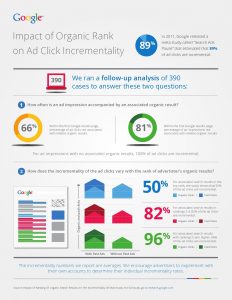In the age of mobile, Local Search Marketing is more important than ever before. Consumers are increasingly incorporating location into their search. While the majority of these users use the big search engines to find local businesses, some also use location-based sites such as Yelp to find the most relevant results. This makes local search marketing an essential part of any business’ online marketing strategy. This demand will only increase as the number of mobile devices increases. Today, 60 percent of searches are made from a mobile device, and people use them as a means to make a purchase.

In addition to local keywords, optimizing your website for them is a must. For example, ranking for terms like “general liability insurance agents” can be difficult. By using local keywords, your site can be found by those searching for the type of services you offer. You don’t have to limit yourself to a specific geographical location, though, to achieve local SEO. However, you should consider using more specific keywords. If you want to optimize your website for the whole world, you should focus on regional terms, such as counties or cities where you operate.
The first step to optimizing your website for local search is ensuring that the information you provide is consistent across all platforms. Inconsistent NAP can confuse customers and cost you revenue. A simple way to check for consistency is to audit your business listings across major search engines. There are many free online services that can help you audit your business listings and make sure they are consistent. If your listing is inconsistent, you can easily improve your local search ranking by increasing the quality of your content.
The next step in local search marketing is identifying the keywords and phrases that are most relevant to your business. These keywords are known as NAP, and they need to be unique to your business. For example, if your local area is large, you should include as many of them as possible. For local search marketing to be effective, you should focus on the local market. By doing so, you will increase your chances of attracting customers in the area.
Another step in local search marketing is claiming and optimizing local listings. These are crucial to attracting local customers. The right meta metadata will attract the right audience and increase your rankings. This will help your website be listed in local searches and attract new customers. By claiming and optimizing your listings, you can improve your business’s visibility and earn more reviews. In addition, you should always try to avoid duplicate content. You can also use a variety of keywords and descriptions that are not related to your business.
While local search marketing requires specific keywords to be effective, it is crucial to use local keywords to boost your rankings. For example, it is very difficult to rank for terms such as “general liability insurance agents” unless you have a website that includes the exact address of your business. By ensuring your presence on local searches, you can increase your chances of being found online. In addition, it’s vital to use the right NAP+W to avoid duplicate content.
Local search marketing is essential for businesses that want to target local customers. By claiming local listings, you can attract local customers and increase your business’s visibility. Managing multiple locations is a crucial part of local search marketing and should be done with great care. This is important as it helps you reach more people and increase your profits. There are a few steps to optimize your business to get more customers and build a brand online. You can try these and other strategies to boost your online presence.
When it comes to local search marketing, you can start with your website. Ensure that the NAP is consistent throughout your online presence. Keep your local listings active. The most effective listings are those that are listed in the top five results on a search. If your business has a blog, it’s a great idea to post relevant content on it. If your blog is relevant to your local area, it’s a good idea to link your website to your blog.




